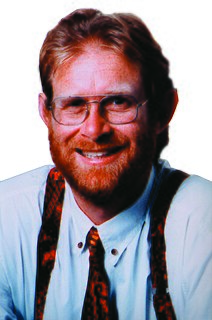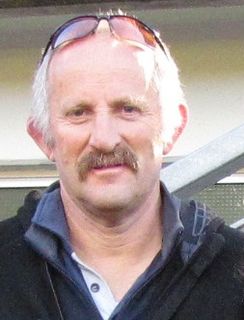The New Zealand Labour Party, or simply Labour, is a centre-left political party in New Zealand. The party's platform programme describes its founding principle as democratic socialism, while observers describe Labour as social-democratic and pragmatic in practice. The party participates in the international Progressive Alliance. It is one of two major political parties in New Zealand, alongside its traditional rival, the National Party.
The Green Party of Aotearoa New Zealand, commonly known as the Greens, is a green and left-wing political party in New Zealand. Like many green parties around the world, it has four organisational pillars. The party's ideology combines environmentalism with left-wing and social-democratic economic policies, including well-funded and locally controlled public services within the confines of a steady-state economy. Internationally, it is affiliated with the Global Greens.
New Zealand First, commonly abbreviated to NZ First, is a nationalist and populist political party in New Zealand. The party formed in July 1993 following the resignation on 19 March 1993 of its leader and founder, Winston Peters, from the then-governing National Party. Peters had been the sitting Member of Parliament for Tauranga since 1984 and would use the electorate as the base for New Zealand First until consecutive defeats by National Party candidates in 2005 and 2008. His party has formed coalition governments with both major political parties in New Zealand: first with the National Party from 1996 to 1998 and then with the Labour Party from 2005 to 2008 and from 2017 to 2020. Peters has served on two occasions as deputy prime minister.

Electoral reform in New Zealand has, in recent years, become a political issue as major changes have been made to both parliamentary and local government electoral systems.

Donald Thomas Brash is a former New Zealand politician who was Leader of the Opposition and Leader of the New Zealand National Party from October 2003 to November 2006, and the Leader of ACT New Zealand from April to November 2011.
United Future New Zealand, usually known as United Future, was a centrist political party in New Zealand. The party was in government between 2005 and 2017, first alongside Labour (2005–2008) and then supporting National (2008–2017).

Rodney David Donald was a New Zealand politician who co-led the Green Party of Aotearoa New Zealand, along with Jeanette Fitzsimons.

Gordon Frank Copeland was a New Zealand politician who served as a Member of Parliament from 2002 to 2008. He entered the House of Representatives as a list MP for the United Future New Zealand Party from 2002 but he resigned from the party in 2007. In March 2009, Copeland became Party President of The Kiwi Party, which he had co-founded with another former United Future list MP, Larry Baldock, in May 2007. Copeland stood for the Conservative Party in the 2011 New Zealand general election. Prior to entering Parliament he held a number of corporate positions before working as the financial administrator for the Roman Catholic Archdiocese of Wellington.
The following lists events that happened during 2005 in New Zealand.

Maryan Street is a New Zealand unionist and former member of the New Zealand House of Representatives, having been elected to parliament in the 2005 general election as a member of the New Zealand Labour Party. She served as the Minister of Housing and Minister for ACC in the final years of the Fifth Labour Government and was the first openly gay female MP elected to the New Zealand Parliament.

NZ On Air, formally the Broadcasting Commission, is an autonomous Crown entity and commission of the New Zealand Government responsible for funding support for broadcasting and creative works. The commission operates largely separate from government policy but must follow directions from the Minister of Broadcasting. NZOA is responsible for the funding of public broadcasting content across television, radio and other media platforms. It is also a major investor in New Zealand independent producers.

The KiwiSaver scheme, a New Zealand savings scheme, came into operation from Monday, 2 July 2007. Participants can normally access their KiwiSaver funds only after the age of 65, but can withdraw them in certain limited circumstances, for example if undergoing significant financial hardship or to use a deposit for a first home.

The Fifth Labour Government of New Zealand was the government of New Zealand from 10 December 1999 to 19 November 2008. Labour Party leader Helen Clark negotiated a coalition with Jim Anderton, leader of the Alliance Party. While undertaking a number of substantial reforms, it was not particularly radical compared to previous Labour governments.
Business New Zealand Inc. is New Zealand's largest business-advocacy body. It is headquartered in Wellington. Vaughan Renner became the president of the BusinessNZ council in 2017 and Kirk Hope has served as the chief executive since 2016.

Christopher Pell Liddell is a New Zealand-American businessperson who served as Chief Financial Officer of Microsoft, the Vice Chairman of General Motors, Senior Vice President and CFO of International Paper, Director and Chairman of Xero and the White House Deputy Chief of Staff in the Trump Administration.

Gareth Huw Morgan is a New Zealand businessman, economist, investment manager, philanthropist, public commentator and former political figure.
The property bubble in New Zealand is a major national economic and social issue. Since the early 1990s, house prices in New Zealand have risen considerably faster than incomes, putting increasing pressure on public housing providers as fewer households have access to housing on the private market. The property bubble has produced significant impacts on inequality in New Zealand, which now has one of the highest homelessness rate in the OECD and a record-high waiting list for public housing. Government policies have attempted to address the crisis since 2013, but have produced limited impacts to reduce prices or increase the supply of affordable housing.

The Great Journeys of New Zealand is the tourism division of KiwiRail that brings together its three Scenic train services with its passenger ferry business, Interislander. The new division was launched in May 2017 and replaced the former tourism brand KiwiRail Scenic Journeys. It has continuity with the earlier InterCity Rail (1987–1995) and Tranz Scenic (1995–2011).

The Sixth Labour Government has governed New Zealand since 26 October 2017. It is headed by Jacinda Ardern, the Labour Party leader and prime minister.
KiwiBuild is a real estate development scheme pursued by the Sixth Labour Government of New Zealand. It began in 2018, with the aim of building 100,000 homes by 2028 to increase housing affordability in New Zealand. It comes under the oversight of the Ministry of Housing and Urban Development and the Minister responsible is the Minister of Housing, Megan Woods.











